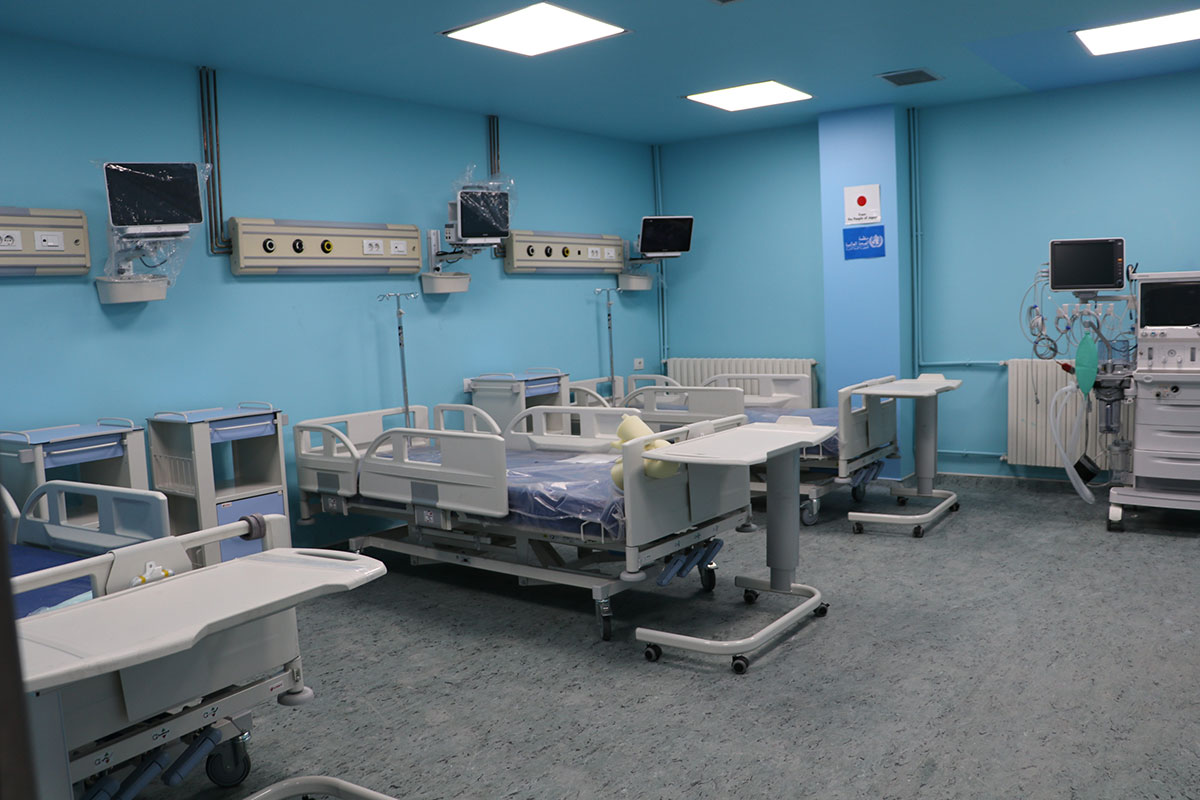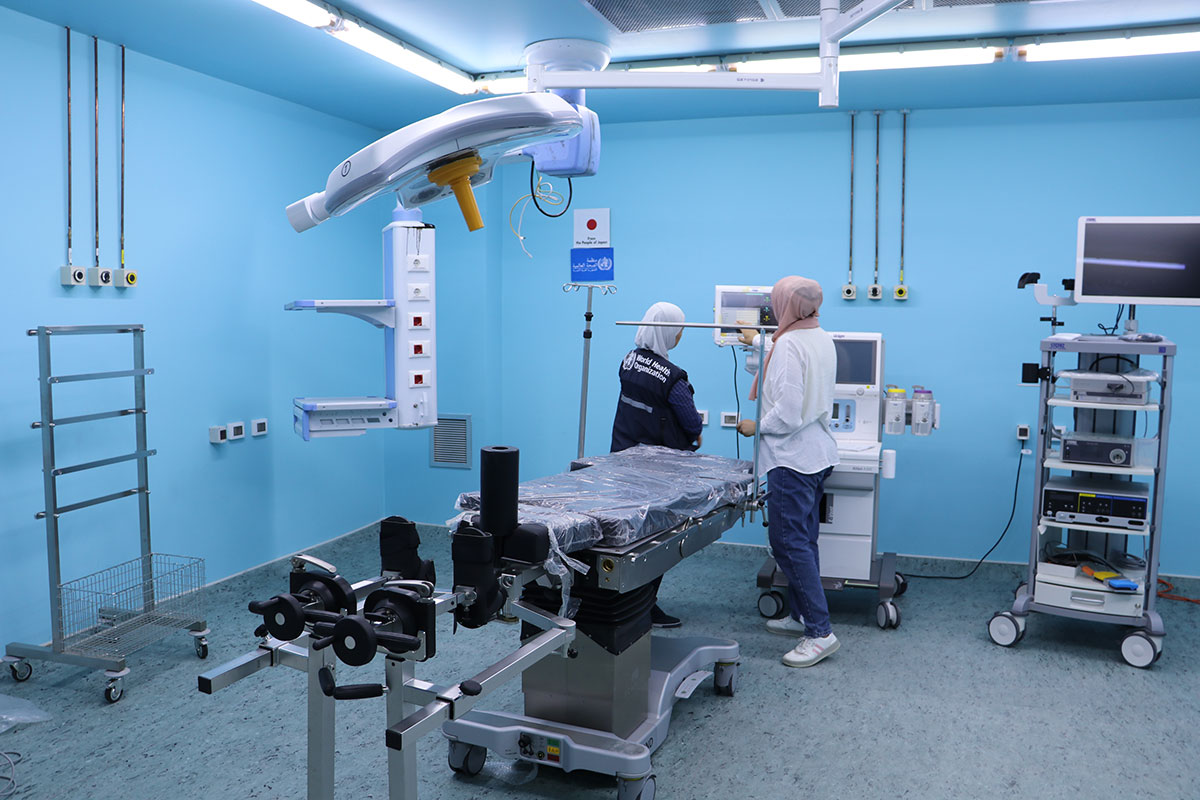 The newly equipped and renovated Intensive Care Unit at the Pediatric Hospital in Aleppo. Photo credit: @WHOSyria.9 October, Aleppo, Syria – The World Health Organization (WHO), in collaboration with the United Nations Development Programme (UNDP) and with funding from the People of Japan, has delivered essential medical equipment to the newly reconstructed Paediatric Hospital in Aleppo, Syria. The initiative marks a critical step in restoring secondary and tertiary health care services for children in Aleppo and surrounding regions. Following extensive rehabilitation by UNDP, the hospital, which was damaged during the Syrian conflict in 2012, is now fully equipped to provide comprehensive care to vulnerable children.
The newly equipped and renovated Intensive Care Unit at the Pediatric Hospital in Aleppo. Photo credit: @WHOSyria.9 October, Aleppo, Syria – The World Health Organization (WHO), in collaboration with the United Nations Development Programme (UNDP) and with funding from the People of Japan, has delivered essential medical equipment to the newly reconstructed Paediatric Hospital in Aleppo, Syria. The initiative marks a critical step in restoring secondary and tertiary health care services for children in Aleppo and surrounding regions. Following extensive rehabilitation by UNDP, the hospital, which was damaged during the Syrian conflict in 2012, is now fully equipped to provide comprehensive care to vulnerable children.
Advanced diagnostic imaging equipment delivered to the hospital includes CT scanners, digital X-rays and ultrasound devices, enabling precise, comprehensive diagnostics and follow-up measures. The hospital also features an 8-bed Intensive Care Unit (ICU) equipped to handle critical paediatric cases, and three fully equipped operating rooms with endoscopy surgical towers. In the paediatric ward, 45 incubators have been installed to provide specialized care for newborns, and the hospital now includes a fully operational haemodialysis unit for treating children with end-stage kidney failure. Three outpatient clinics provide oral health, ear, nose and throat and neurological services, including electroencephalograms.
 Two oxygen generators, three electric generators, a central sterilization unit, a kitchen and laundry units have been installed to ensure the hospital runs smoothly.
Two oxygen generators, three electric generators, a central sterilization unit, a kitchen and laundry units have been installed to ensure the hospital runs smoothly.
Underlining the importance of the project, acting WHO Representative to Syria, Dr Iman Shankiti, said: “Thanks to the support of the People of Japan, the reopening of this hospital brings vital secondary and tertiary health care services back to the community, ensuring that children receive the life-saving medical attention they need without having to travel long distances.”
The 70-bed capacity hospital will serve over 4 million people in eastern rural Aleppo and benefit children referred from neighbouring governorates, including Al-Hasakeh, Ar-Raqqa, and Deir-ez-Zor.
This generous contribution from the People of Japan bolsters WHO’s efforts to support Syria’s health system. The hospital’s revival not only improves access to health care but also restores hope for thousands of families who have struggled amidst adverse conditions, often forced to travel for long distances to seek treatment opportunities elsewhere.
Dedicated to improving health outcomes and alleviating the suffering of communities affected by the ongoing crisis, WHO continuously provides essential medical supplies, strengthens health care services, and ensures access to quality health care as part of its overall goal to ensure a resilient health system in Syria.


